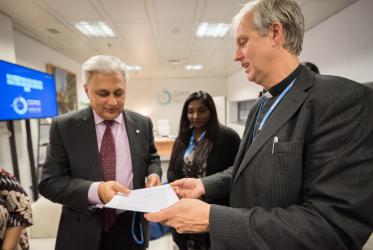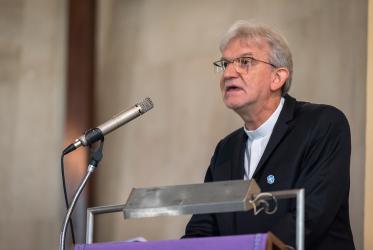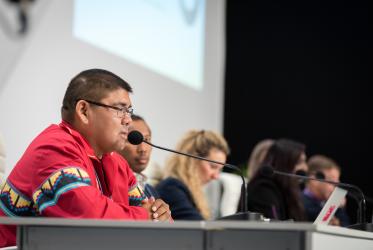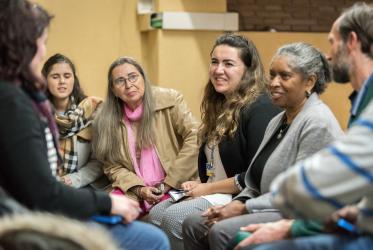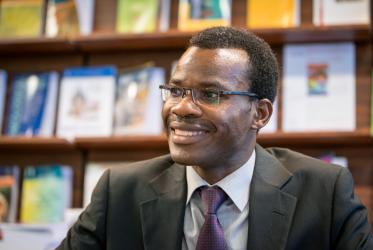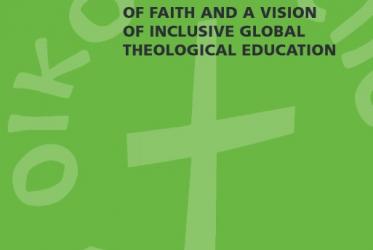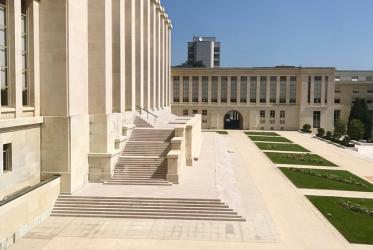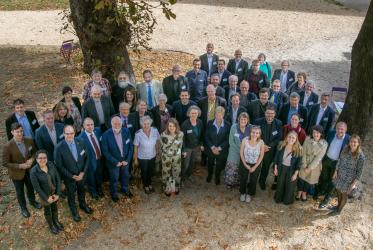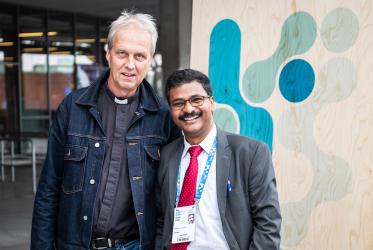Displaying 81 - 100 of 371
12 December 2019
Interfaith group delivers message to COP25
10 December 2019
“See humans as part of creation” in addressing climate emergency
06 December 2019
WCC staff appointed to WHO Civil Society Working Group on NCDs
28 November 2019
WCC deeply regrets USA stance on West Bank settlements
25 November 2019
Those who make Bossey so special: The students
14 November 2019
WCC well-represented in Religions for Peace leadership
07 October 2019
WCC offers statement on racism before UN Human Rights Council
24 September 2019
WCC organises event on “The Human Rights Situation in the Philippines”
18 September 2019
WCC pressing ahead with disarmament work
28 August 2019
Water and Faith showcase highlights results of collaboration
26 August 2019

